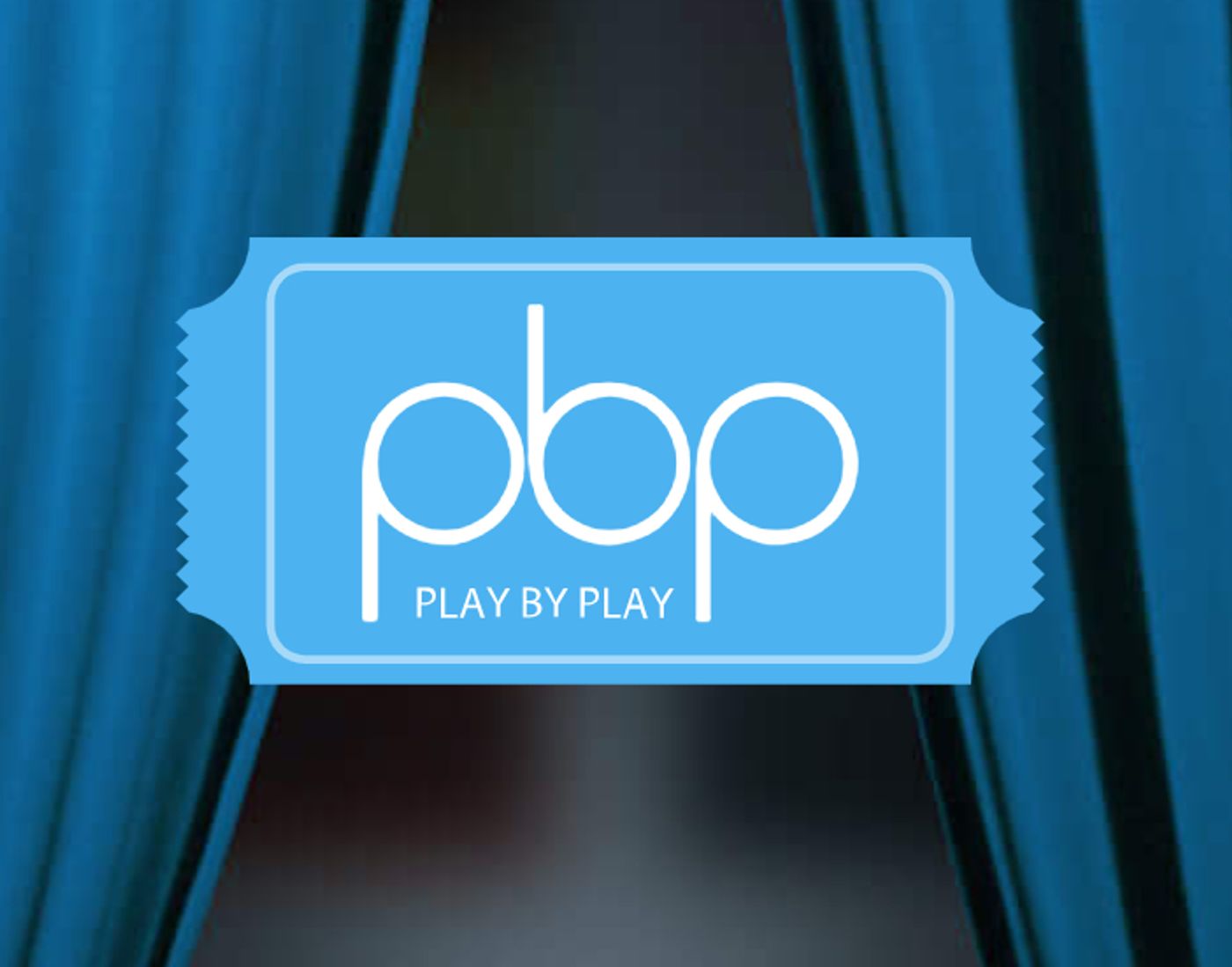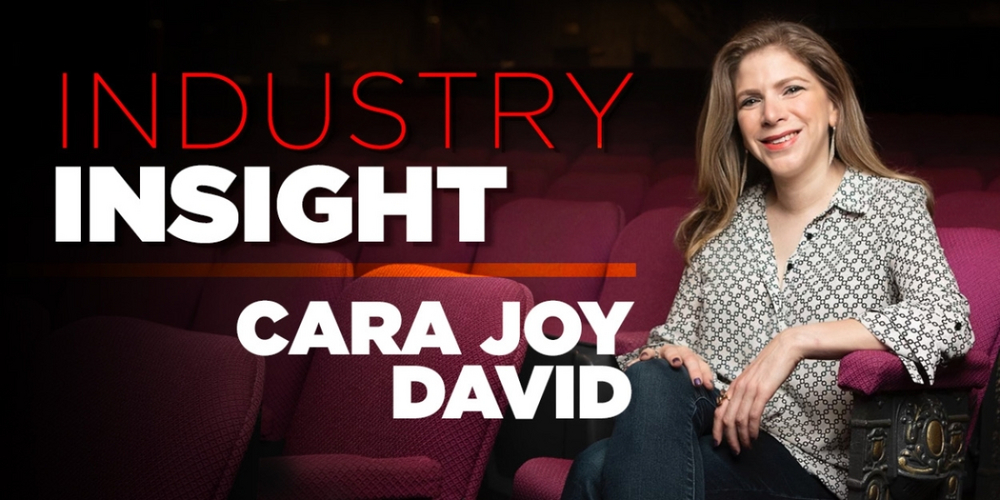What Is Papering and How Does it Fill Seats on Broadway?
Papering is a time-honored tradition to fill seats. We've got the scoop on how it works!
In all of Broadway's efforts to promote accessible tickets, there is little talk of "papering." There is good reason for this -- if people capable of buying full-price tickets know that others are going to see a show for free, they won't want to pay full price for that same show. But papering existed before the pandemic and survived after it. However, like the theater itself, papering is still recovering, and not all agencies survived the shutdown.
For those uninitiated, papering is a time-honored tradition to fill seats. When a show has extra seats, sometimes producers hold onto them, hoping for last minute sales. Sometimes they send free ticket offers to their own internal distribution lists. (Ken Davenport, one of the few producers to openly discuss papering, has been known to post offers on his The Producer's Perspective blog.) Sometimes they give them to cast and crew to distribute to friends and family. Sometimes they deliver them to non-profits or certain businesses. And sometimes they hand them off to a papering company.
"The idea is word of mouth," Jed Canaan of Theater Extras, one of theater's bigger papering agencies, explained. "If you get a full house, and those people who are there spread good word of mouth, the theater hopes that ticket sales increase."

Papering agencies have members and they make money from charging those members a processing fee per ticket and, usually, a membership fee as well. Obviously, while some shifted partially to digital offerings, during the pandemic membership lagged and processing fees dried up.
Audience Extras, Inc. -- which was one of the theater's oldest papering agencies -- appears not to have made it out. The website has long said: "Audience Extras is currently undergoing maintenance. Please check back periodically for updates. We apologize for the inconvenience." Calls and emails to the company have gone unreturned, as have reach-outs to John D'Esposito, the individual named on the company's state filings. The Better Business Bureau website also contains complaints from members who were charged an annual fee but have received no benefits of that membership.
 In addition to Theater Extras, remaining papering agencies include Play-By-Play, Club Free Time, TheaterMania Gold Club and the Will-Call Club. Show-Score, which is predominantly thought of as an audience review aggregator, also offers their frequent users access to complimentary tickets with a processing fee that goes down the more reviews you post. (The fee starts at $25 per ticket for Broadway once a user posts two reviews and goes down to $20 if you post six or more reviews. The processing fee is only $15 if you pay a membership fee, but no one contacted for this story had.) Producers, general managers and venue owners contact these services and ask them to distribute tickets. The service is complimentary to the production -- it is the ticket recipients who pay.
In addition to Theater Extras, remaining papering agencies include Play-By-Play, Club Free Time, TheaterMania Gold Club and the Will-Call Club. Show-Score, which is predominantly thought of as an audience review aggregator, also offers their frequent users access to complimentary tickets with a processing fee that goes down the more reviews you post. (The fee starts at $25 per ticket for Broadway once a user posts two reviews and goes down to $20 if you post six or more reviews. The processing fee is only $15 if you pay a membership fee, but no one contacted for this story had.) Producers, general managers and venue owners contact these services and ask them to distribute tickets. The service is complimentary to the production -- it is the ticket recipients who pay.
Each of the papering agencies is a little difference. For example, Club Free Time is like a papering agency plus cultural guidebook.
"Basically, our audience is anyone who is interested in culture and doesn't want to, or cannot, spend money for full price tickets," Club Free Time owner Natella Vaidman said.
In addition to complimentary tickets to paid events, Club Free Time has a listing service that compiles free events going on throughout the city. For example, for September 18, Club Free Time listed approximately 30 offerings, everything from street fairs to neighborhood tours to screenings and, yes, theater. Some of these things -- ala the street fairs -- are naturally free, no reservation required. Some of them are free, but require a reservation. And then there are events such as an off-Broadway play, for which members pay a $4.50 processing fee per ticket for up to five tickets (show and supply dependent). While Club Free Time offers weekly and monthly subscriptions, for those who want to know all about free events around the city, complimentary tickets to paid events are only offered to annual subscribers, who pay $24.95 per year.
Vaidman said in terms of theatrical shows and concerts, the offerings are improving, but they are not at pre-pandemic levels. According to Vaidman, during the first eight-and-a-half months of 2019, Club Free Time offered complimentary tickets for 3628 performances of 1016 shows (including concerts). The first eight-and-a-half months of this year it has been 2337 performances of 468 shows. This means the number of shows is less than half what it was pre-pandemic, although the number of performances offered per show is higher than it was, on average, in 2019. The 2022 figures are much better than 2021, which was extremely slow, but obviously not at pre-pandemic levels. Neither is membership, but it too is rebounding, and is currently at about 75% of where it was pre-pandemic. Thanks in part to the low yearly fee, Club Free Time currently has about 13,000 members according to Vaidman.
Members and theater producers each have their opinion on which papering service is best and for what reason, but a survey of Broadway producers seemed to indicate Theater Extras and Play-By-Play were two of the most commonly used specifically for Broadway papering. Some Play-By-Play members complained about the need to establish a debit account where fees are removed from, as opposed to Theater Extras' easy credit card charge. While others complained that Play-By-Play often offers discounts instead of complimentary tickets. But, in general, allegiances were pretty split among members polled, mostly based on members' views of current and recent offerings.
 Both companies purport to offer tickets to Broadway, off-Broadway, off-off-Broadway, movie previews, cabaret, comedy, concerts and others cultural events. Both charge $99 a year for up to two tickets, though Theater Extras is only $175 is you want up to four tickets, whereas Play-By-Play is $198. (Play-By-Play also appears to have a higher processing fee on its memberships -- both have a $4.50 per ticket processing fee for individual ticket purchases.) While Canaan said Theater Extras was currently listing about 80%-85% of its pre-pandemic listings, Jason Faust of Play-By-Play said Play-By-Play was at about pre-pandemic levels in terms of listings.
Both companies purport to offer tickets to Broadway, off-Broadway, off-off-Broadway, movie previews, cabaret, comedy, concerts and others cultural events. Both charge $99 a year for up to two tickets, though Theater Extras is only $175 is you want up to four tickets, whereas Play-By-Play is $198. (Play-By-Play also appears to have a higher processing fee on its memberships -- both have a $4.50 per ticket processing fee for individual ticket purchases.) While Canaan said Theater Extras was currently listing about 80%-85% of its pre-pandemic listings, Jason Faust of Play-By-Play said Play-By-Play was at about pre-pandemic levels in terms of listings.
This all might catch some readers by surprise -- there was a perception at some point that post-pandemic theater would be a windfall for papering agencies. With box offices slow, some thought producers would flood agencies with free tickets. And this did happen to some extent, as evidenced by the Broadway Grosses (which sometimes display a very large discrepancy between attendance and gross) and, perhaps, Club Free Time's having more performances available per show. However, many producers were reluctant to rely too much on papering agencies, both because they craved the money post-shutdown, but also because it could alter the preferred narrative about theater's quick recovery.
"It was hard to decide," one Broadway general manager said. "On one hand, attendance was an important figure. Important for us and the story. On the other hand, that type of attendance was not helpful long term and we needed to find other ways."
For their part, all papering agencies contacted spoke about the importance of discretion. Insert FIGHT CLUB line here. (While any Show-Score user can see that site's current offerings after filing two reviews, most sites require payment before availability is seen.) They each have policies that mandate their members are not allowed to talk about getting their tickets from a papering agency. Members are kicked out if they violate this rule or a host of others. Play-By-Play also has a screening process where potential members have to answer a series of questions about buying habits and income. Faust said they do turn members down based on these responses.
"We're focused on filling these seats with the right kind of audience," Faust stated. "We don't want to convert full price ticket buyers into seat fillers."
Canaan said that Theater Extras did not rely on questionnaires as an entryway to membership, because he believed that he could not trust the answers, but he did strictly enforce the Theater Extras Terms and Conditions and booted members that did not comply. What does it take to cross the papering gods? Anything from repeatedly not showing up at the theater to being rude at the theater to talking about papering in the theater to sharing offerings with others. (While the papering agencies rely on word of mouth to gather members, they prefer you not pinpoint offerings when spreading the word, and instead make general statements such as "I got to see three Broadway shows last season because of...")
The offerings on these services necessarily vary by season and focus. For theater offerings, the busiest times are fall and spring seasons, particularly at press performance time or Tony voter time. For shows in previews the services can be particularly helpful for spreading buzz. For example, Theater Extras asks their members to share on social media their attendance at an event and also write a private review on the Theater Extras site about the show. Those reviews are then sent to the general manager for the production to do with what they wish, including using the positive comments in advertisements.
But despite the benefits of papering, it will never be fully embraced for obvious reasons. Too much papering necessarily means leaks about papering and a greater reluctance to spend big bucks on tickets.
"Even if they are not selling well, some producers don't want to paper," Canaan stated. "One side is the benefit side -- that a full house gives the overall feel of the show a lift. But some would rather a house sit half empty and still don't want to give a ticket to a papering service. I get that side as well."

Videos


